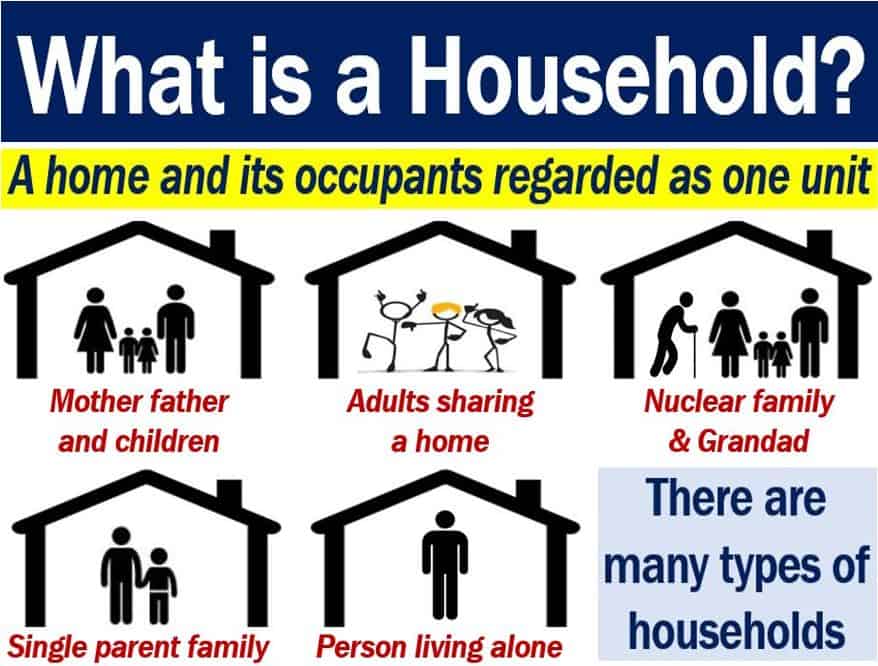A Household refers to a social unit of people living in a house or a home, i.e., under one roof. However, this definition can vary slightly among countries and organizations. For example, in the U.S. the Census Bureau has two terms for it.
1. There is the “Family Household,” which consists of the members that are related by blood or law.
2. There is also the “Non-Family Household,” which comprises people who share their homes or live on their own.
The UK government defines the term as:
“One person or a group of people who have the accommodation as their only or main residence and for a group, either share at least one meal a day or share the living accommodation, that is, a living room or sitting room.”
The concept of a household is foundational in demographic research, influencing a range of policy decisions from housing and urban development to social services.
The average household is different today
In the US, the composition of people who share one roof has changed considerably. Nowadays, single-person households are accounting for a much higher percentage of the total compared to the 1970s.
Over the past few years, the rise of shared housing and cohabitation among non-relatives reflects changing social dynamics, contributing to the evolving definition of what constitutes a household.
The culture, age structure, and economic state of a country have a significant influence on the size and composition of the people who share the same roof.
The average size and composition of homes depend a lot on the age structure of the population. They may also reflect social and economic changes.

Household in economics
We commonly use the term as a unit of analysis in various demographic, governmental, and economic measures. For example, we may use the term to calculate average income or spending.
The majority of economic theories assume that there is just one income stream in a home. Although it does not necessarily reflect reality, it is a useful simplification for modeling.
Households today typically have more income streams than in the past.
When economists make economic models, they do not address whether the people who share a roof belong to a family. That is, a family in the traditional sense.
When governments discuss policy, they usually treat the terms families and households as synonymous. This is especially the case in western societies, where the nuclear family is the most common structure within a home.
However, reality can be quite different. In fact, there is not always one family per household or vice-versa.
There are many terms that contain the word ‘household.’ For example, household goods are products that we buy and use within our homes.
Video – What is a Household?
This interesting video presentation, from our YouTube partner channel – Marketing Business Network, explains what a ‘Household’ is using simple and easy-to-understand language and examples.
